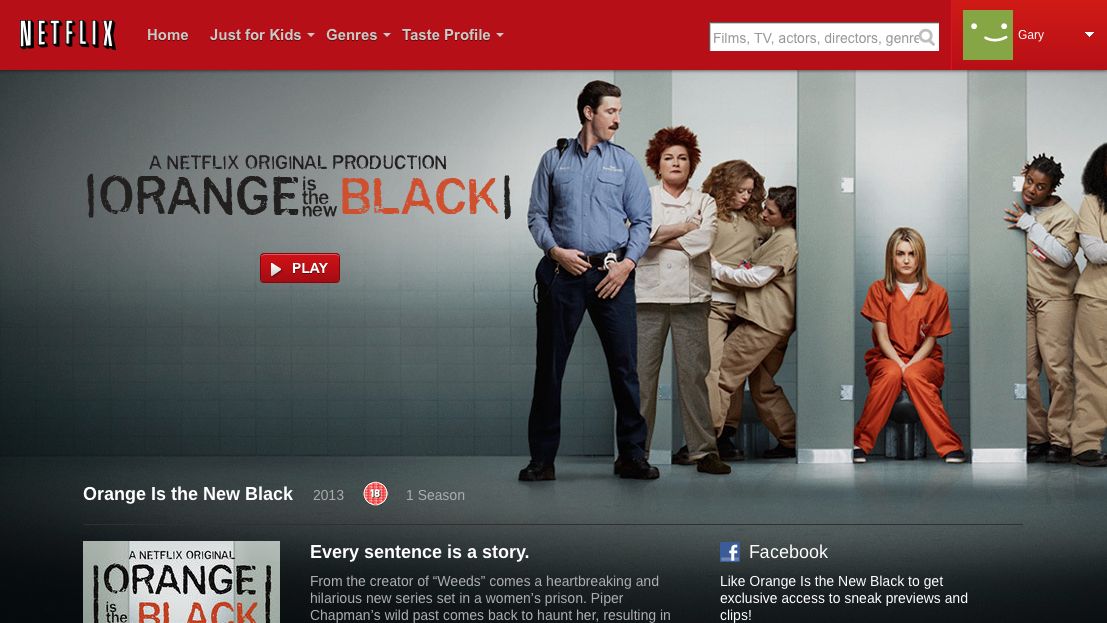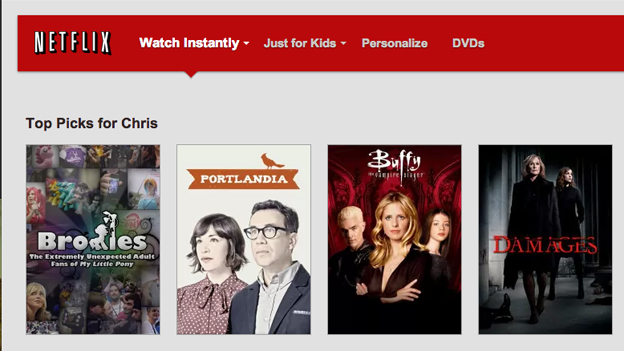How Spotify, Netflix and Amazon control your online habits
When is a choice not really a choice?

Whatever you watch on Netflix, listen to on Spotify or buy from Amazon this week there's a good chance you won't actually make a choice - it would have already been done for you.
With thousands of TV and movie options and millions of songs on tap, it may feel like there is real choice. But these companies with their vast oceans of content have crafted powerful recommendation engines, taking heed of what we already like and drawing conclusions about what else we would enjoy. We gobble up the recommendations because they're so convenient.
But here's the thing. Netflix says 75 per cent of all viewer choices come from its Suggestions engine. That's a startling figure for a tool that has its moments, but often that kicks up more crap than the meanest bull at the Texas State Rodeo.
Better, fewer options?
Increasingly, on-demand content providers and web portals are using big data to tell us what to watch or listen to, or at the very least narrow down the options, supposedly for our own good.
Take Spotify, for example. Its entire platform is underpinned by a finely tuned trifecta of human editors, computer algorithms and social media data, bringing recommendations based on previous listening habits.
It's damn good at it too. While that's initially gratifying, there's a risk it could reduce the notion of musical free will to a mere illusion, if we come to rely on tools like Discover.
Donovan Sung, the project manager overseeing Discover and the wider recommendations engines that pervade across the service, told TechRadar: "There's a fine balance between providing too much choice or too little choice in this information overload society.
Sign up for breaking news, reviews, opinion, top tech deals, and more.
"Users don't want 100 options; they would rather have one great option or four great options. We err on the side of providing too few."
Where's all the new stuff?
"There's a fine balance between providing too much choice or too little choice in this information overload society."
Many have complained that Spotify Discover, which now acts as the service's homepage, doesn't do enough to furnish people with new music.
Rather, it takes the 'you like X so you'll like Y' which promises more of the same, and the 'you haven't listened to Y in a while, give it another spin,' approach. Again, Sung says user listening habits have informed these decisions.
"We've actually found that a lot of music discovery sessions aren't about listening to new music, they're actually about familiar music or things you've played recently," he said.
"Music discovery, in the case of discovering new things, is not a super main use case for most users, those are the power users who want to hear every indie band they haven't discovered yet. There are ways for them to do that beyond Discover."
Those users can use the App Finder to find curators dedicated to new music, they can follow influential playlist creators and there's even a new playlist the company is testing which draws together the most interesting stuff from everyone in the user's network. The Browse selection has a massive new releases section also.
So it's not that the new music isn't there, but us users are happiest when hunting within our own pack, according to Spotify. If we want new music, the onus is on us to seek it out.
'You know me too well, mate!'
Perhaps the problem isn't with bad recommendations because Spotify's are well thought out. In this case perhaps the suggestions have gotten so good we've stopped looking beyond them and, in terms of broadening our musical horizons, that's a problem.

So what's Netflix's excuse? It can't make the same claims as its musical equivalent when it comes to archive content (which it cares less and less about) or new content. It lost the rights to 85 classic movies at the start of 2014, that New Releases section has been showing Louie Season 3 for about 6 months now, and our "Suggested for you" barely changes.
A technology journalist, writer and videographer of many magazines and websites including T3, Gadget Magazine and TechRadar.com. He specializes in applications for smartphones, tablets and handheld devices, with bylines also at The Guardian, WIRED, Trusted Reviews and Wareable. Chris is also the podcast host for The Liverpool Way. As well as tech and football, Chris is a pop-punk fan and enjoys the art of wrasslin'.
